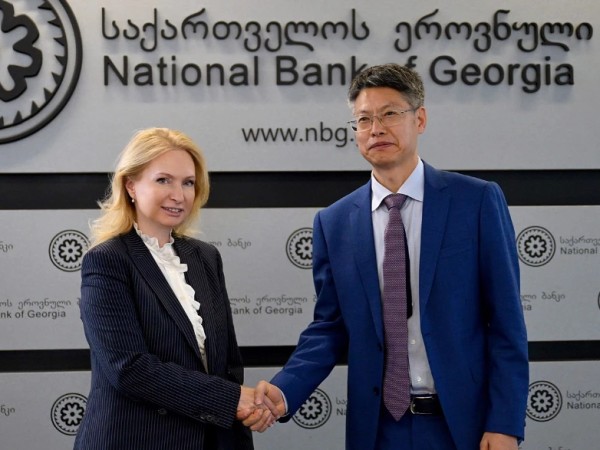Tbilisi (GBC) - The National Bank of Georgia (NBG) has issued an official statement clarifying that its cooperation with China’s Cross-Border Interbank Payment System (CIPS) is not intended to replace the global SWIFT system, but rather to serve as a complementary mechanism to support trade with China.
According to the NBG, participation in CIPS will provide Georgian banks with more efficient, transparent, and cost-effective options for conducting transactions in Chinese yuan. By allowing direct settlements without the need for intermediary financial institutions, the system is expected to improve the reliability and sustainability of payment processes between Georgian and Chinese partners.
“Cooperation with CIPS creates new opportunities for banks involved in trade between Georgia and China. However, it is not an alternative to SWIFT,” the statement reads.
The bank emphasized that speculation claiming CIPS would replace SWIFT is unfounded and misleading. Unlike SWIFT, which enables transactions in numerous global currencies, CIPS is focused solely on yuan-denominated payments.
As of June 2025, CIPS includes more than 4,900 financial institutions across 189 countries, including 261 in Europe and 34 each in North and South America. The vast majority of these institutions simultaneously use both CIPS and SWIFT.
NBG reaffirmed that Georgia’s strategic cooperation with SWIFT remains intact and is expanding. The central bank is leading the implementation of the ISO 20022 messaging standard in Georgia’s banking system and chairs the SWIFT National Team in the country. It also participates in pilot programs for new SWIFT products and services.
“Our relationship with SWIFT spans decades and will continue to deepen, ensuring Georgia’s strong integration with the global financial infrastructure,” the NBG said.
What is CIPS?
Launched in 2015 by the People’s Bank of China, CIPS is designed to facilitate cross-border transactions in Chinese yuan. The system is increasingly used by institutions engaged in trade with China, offering an additional channel for settlements. However, it remains regionally focused and is not intended to replace SWIFT’s global reach or functionality.





















